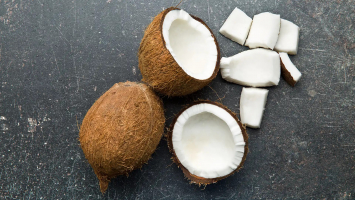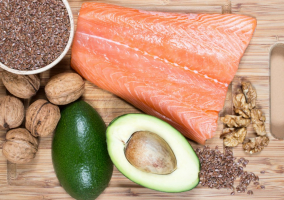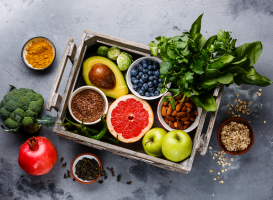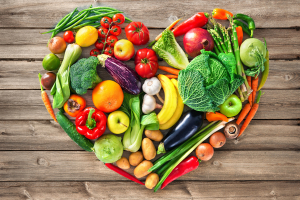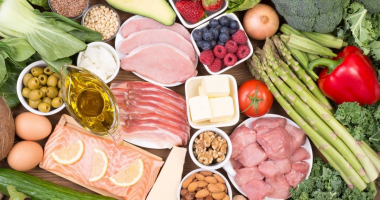Top 10 Natural Appetite Suppressants That Help You Lose Weight
The market is flooded with items for losing weight. They function in many ways, such as by lowering your hunger, preventing the absorption of specific ... read more...nutrients, or raising your calorie expenditure. This article focuses on natural plants and herbs that have been demonstrated to assist you in eating less food by lowering cravings, boosting feelings of satiety, or decreasing appetite. Here are the best all-natural appetite suppressants for weight loss.
-
A plant from the legume family is fenugreek. The most often utilized component of the plant is the seed, which has been dried and pulverized. About 45% of the fiber in the seeds is insoluble. They do, however, also include soluble fiber, such as galactomannan. Fenugreek has been demonstrated to provide health advantages due to its high fiber content, including blood sugar stabilization, cholesterol-lowering, and hunger control. Fenugreek acts by delaying the absorption of carbohydrates and fats and decreasing stomach emptying. This results in a decrease in appetite and improved blood sugar management.
In a research of 18 healthy individuals with obesity, it was shown that taking 8 grams of fenugreek fiber instead of 4 grams significantly decreased hunger. The following meal was smaller for participants because they felt fuller. Additionally, it appears that fenugreek may aid individuals in consuming less fat. For instance, consuming 1.2 grams of fenugreek seed extract reduced daily fat consumption by 17% in a trial of 12 healthy males. They consumed 12% fewer calories on a daily basis as a result. Furthermore, a review of 12 randomized controlled research revealed that fenugreek can decrease cholesterol and blood sugar levels. Fenugreek is safe and has minimal to no adverse effects, according to research.
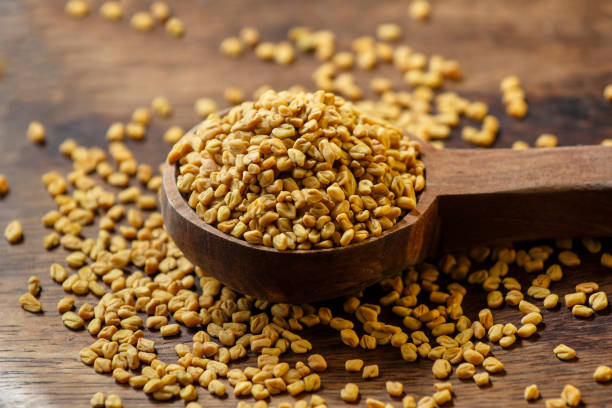
Fenugreek 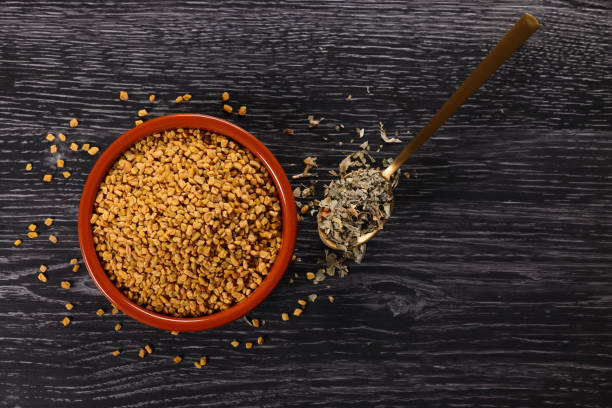
Fenugreek -
An excellent strategy to reduce weight and regulate hunger is to increase your fiber intake. Glucomannan appears to be the most potent soluble fiber for weight loss among the more well-known ones. It lessens both appetite and food consumption. Additionally, glucomannan has the capacity to absorb water, transforming into a thick gel that can avoid digestion and enter the colon mostly undamaged. Glucomannan's bulking ability helps to increase feelings of fullness and postpone stomach emptying, which can help people eat less and lose weight. In one research, after taking a supplement containing 3 grams of glucomannan and 300 mg of calcium carbonate for two months, 83 overweight participants had substantial drops in body weight and fat.
In bigger research, 176 overweight adults were randomly assigned to take one of three glucomannan supplements, a placebo, or a calorie-restricted diet. Compared to those who took the placebo, individuals who got any of the glucomannan supplements significantly lost weight. Additionally, glucomannan may lessen protein and fat absorption, feed the good bacteria in the stomach, control blood sugar levels, and lower total and LDL (bad) cholesterol. In general, glucomannan is well tolerated and regarded as safe. However, it could begin to grow before getting to the stomach, posing a choking risk. It's crucial to take it with one to two glasses of water or another liquid as a result.
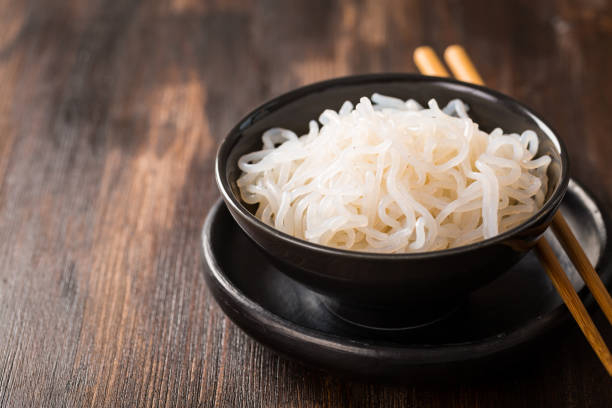
Glucomannan 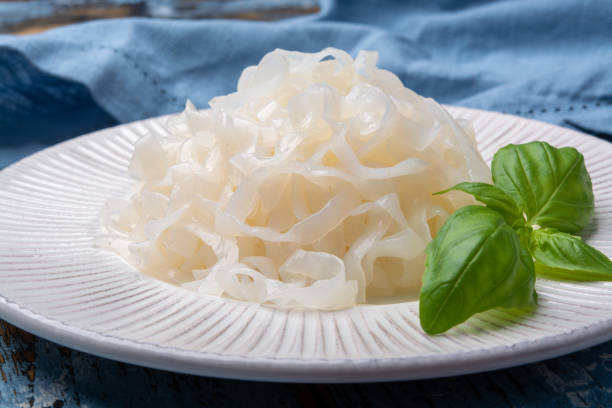
Glucomannan -
Gymnema Sylvestre is a herb that is most well-known for its ability to combat diabetes. It could also help with weight loss, though. Gymnemic acids, which are its active ingredients, have been demonstrated to inhibit food sweetness. In other words, Gymnema Sylvestre consumption can lessen the mouthfeel of sugar and ward off sugar cravings. Gymnema Sylvestre has been shown to reduce hunger and increase the likelihood that people would restrict their food consumption, according to a study that examined the supplement's effects on fasting individuals.
Similar to this, gymnemic acids have the ability to attach to sugar receptors in the gut, blocking the blood from absorbing sugar. This could keep blood sugar levels low and prevent the accumulation of fat from carbohydrates. A few research on animals also corroborates Gymnema Sylvestre's effects on body weight and fat absorption. In one of the trials, animals who were fed a high-fat diet for 10 weeks were given this supplement to help them maintain their weight. Another research found that Gymnema Sylvestre might inhibit fat digestion and potentially boost the body's excretion of fat. Always attempt to take these supplements with meals because taking them on an empty stomach may cause slight stomach pain.
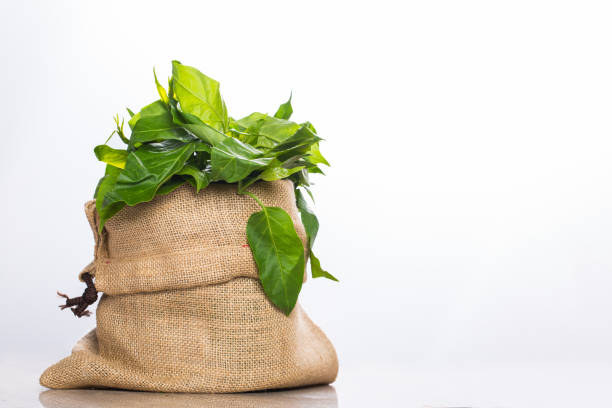
Gymnema sylvestre 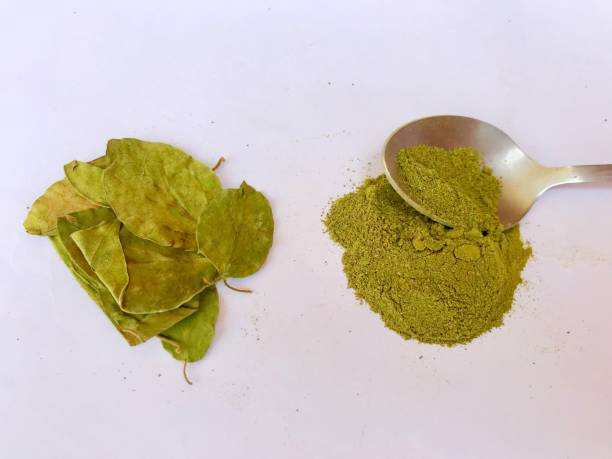
Gymnema sylvestre -
One of the main plants for naturally obtaining 5-hydroxytryptophan is called Griffonia simplicifolia (5-HTP). Serotonin is produced in the brain from a substance called 5-HTP. Serotonin levels have been found to affect the brain by decreasing hunger. Thus, 5-HTP promotes weight reduction by assisting in lowering carbohydrate consumption and hunger levels. In one trial, 20 overweight healthy women were randomly assigned to receive Griffonia simplicifolia extract containing 5-HTP for 4 weeks, or a placebo. The treatment group had significantly higher degrees of satiety and lower waist and arm circumferences at the conclusion of the research.
In a different research, 27 overweight, healthy women were examined to see how a formulation containing 5-HTP affected their hunger. According to the findings, over the course of eight weeks, the treatment group had a decreased appetite, felt more satisfied, and lost a considerable amount of weight. On the other hand, chronic usage of 5-HTP supplements seems to cause mild nausea and stomach pain. When used with some antidepressants, 5-HTP supplements may potentially raise the risk of serotonin syndrome. Without first talking to your doctor, you shouldn't use Griffonia simplicifolia or 5-HTP pills.

Griffonia simplicifolia (5-HTP) 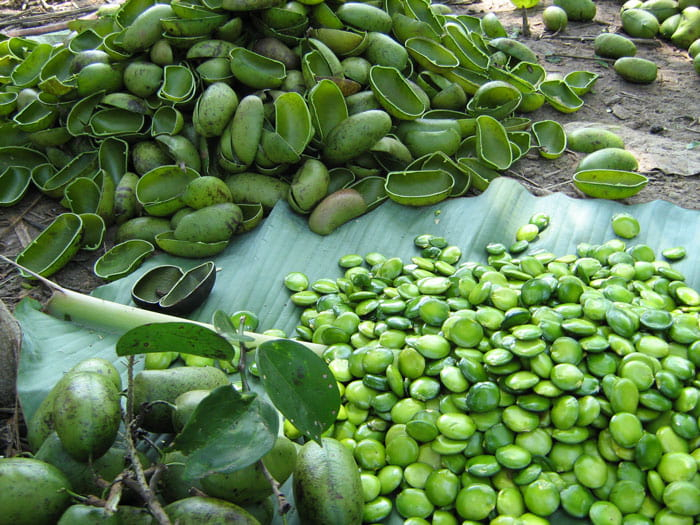
Griffonia simplicifolia (5-HTP) -
Herb Caralluma Fimbriata has been used for centuries to improve endurance and inhibit hunger. Serotonin has been demonstrated to lower the number of carbohydrates consumed and reduce hunger. It is thought that Caralluma Fimbriata contains substances that can boost serotonin circulation in the brain. In one study, consuming 1 gram of Caralluma Fimbriata extract for 2 months caused a substantial decrease in hunger, which led to a 2.5% weight loss in 50 overweight persons. Another trial combined a controlled diet and exercise program with the administration of 500 mg of Caralluma Fimbriata twice daily for 12 weeks to 43 overweight participants. It was discovered that their body weight and waist circumference had significantly decreased.
Another study focused on individuals with Prader-Willi syndrome, a medical condition that promotes overeating. For 4 weeks, participants were given Caralluma Fimbriata extract in dosages of 250, 500, 750, or 1,000 mg, or a placebo. By the end of the research, the group receiving the highest dose—1,000 mg per day—had considerably decreased hunger levels and food consumption. The side effects of Caralluma Fimbriata extract have not been established.

Caralluma fimbriata 
Caralluma fimbriata -
The ability of green tea extract to help people lose weight has been demonstrated, in addition to its many other wonderful health advantages. Caffeine and catechins, two substances found in green tea, help the beverage to aid in weight loss. A well-known stimulant that boosts fat burning and reduces hunger is caffeine. Epigallocatechin gallate (EGCG), in particular, has been found to increase metabolism and decrease fat.
Green tea extract contains both EGCG and caffeine, which together increase the body's capacity to burn calories and promote weight reduction. In fact, a study of 10 healthy individuals found that ingesting EGCG and caffeine together increased calorie burn by 4%. The ability of green tea extract to decrease hunger in humans has not been studied, however, it appears that green tea combined with other compounds may do so. Up to 800 mg of EGCG in green tea has been determined to be safe. 1,200 mg of EGCG at higher levels has been connected to nausea.
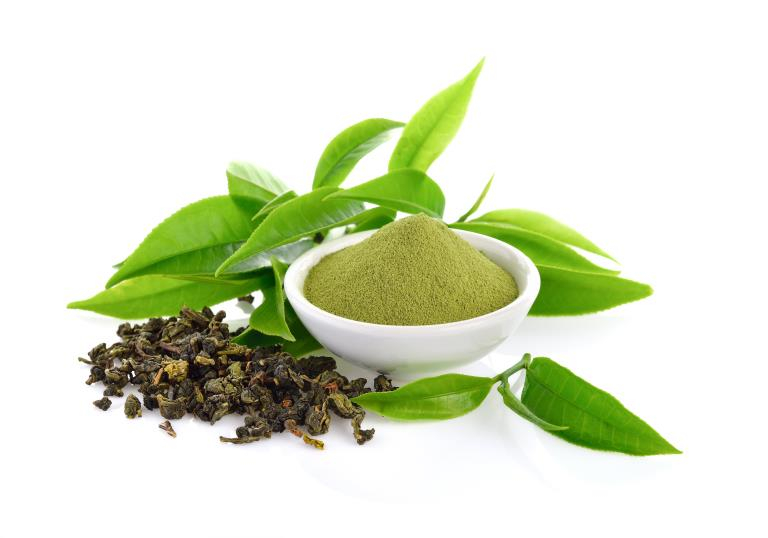
Green tea extract 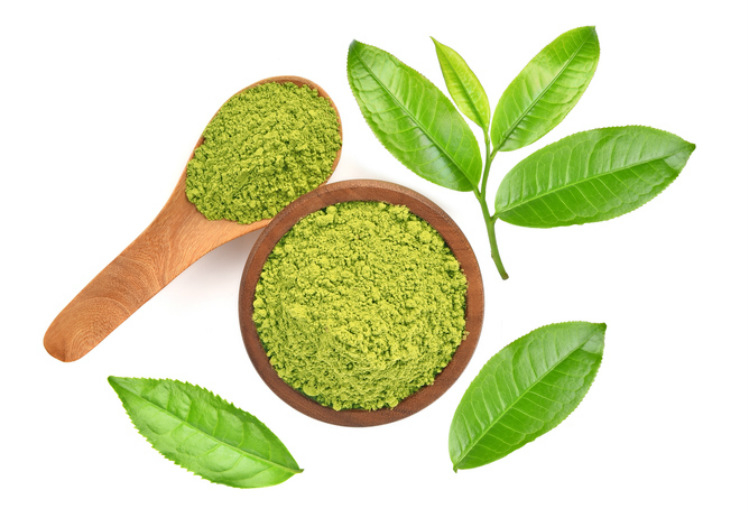
Green tea extract -
A kind of trans fat called conjugated linoleic acid (CLA) occurs naturally in several fatty animal products. Interestingly, it offers a number of confirmed health advantages. CLA has been demonstrated to support weight reduction by enhancing fat burning, preventing the synthesis of fat, and promoting fat breakdown. According to research, CLA also makes people feel more satisfied and curbs their hunger.
In a research, 54 participants who received 3.6 grams of CLA daily for 13 weeks had less hunger and felt more satisfied than those who received a placebo. But it had no impact on how much food the participants ate. Additionally, CLA appears to aid in lowering body fat. According to a study of 18 research, eating 3.2 grams of CLA daily appears to lower body fat. Studies have found CLA to be safe, and dosages up to 6 grams daily have not been associated with any negative side effects.

Conjugated linoleic acid 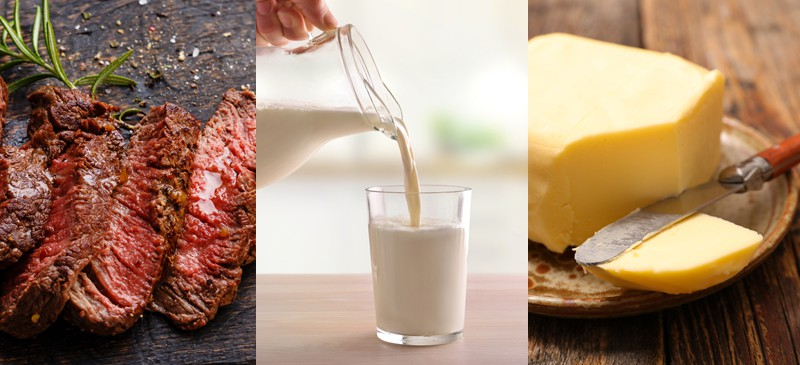
Conjugated linoleic acid -
The same-named fruit, often referred to as Garcinia gummi-gutta, is where Garcinia Cambogia is derived. This fruit's peel has significant amounts of hydroxycitric acid (HCA), which has been shown to have weight reduction benefits. Supplements containing garcinia Cambogia may help people eat less, according to a study on animals. Human studies also show that Garcinia Cambogia suppresses hunger, prevents the creation of fat, and reduces body weight. It appears that Garcinia Cambogia can also increase serotonin levels, which affect the receptors in the brain that send signals of fullness. It could thus reduce appetite as a result.
Other research, however, has shown that garcinia cambogia does neither suppress appetite nor promote weight reduction. As a result, individual outcomes may differ. When used at quantities of up to 2,800 mg of HCA per day, garcinia cambogia appears to be safe. There have been reports of certain negative effects, including headaches, skin rashes, and stomach trouble.

Garcinia cambogia 
Garcinia cambogia -
South America is the natural home of the yerba mate plant. It is well recognized for its capacity to increase energy. According to research on animals, drinking yerba mate for four weeks drastically reduced food and fluid consumption and promoted weight reduction. One research in rats found that regular yerba mate use increased levels of the hormones glucagon-like peptide-1 (GLP-1) and leptin, which in turn helped reduce hunger, food intake, and body weight. Leptin is the hormone responsible for indicating fullness, whereas GLP-1 is a substance produced in the stomach that controls hunger. There is less hunger when their levels rise.
Yerba mate may help decrease hunger and appetite when combined with other nutrients, according to recent research. In fact, a study of 12 healthy women found that consuming 2 grams of yerba mate before engaging in a 30-minute cycling workout decreased hunger and even increased metabolism, attention, and energy. Yerba mate seems to be risk-free and has no significant adverse effects.
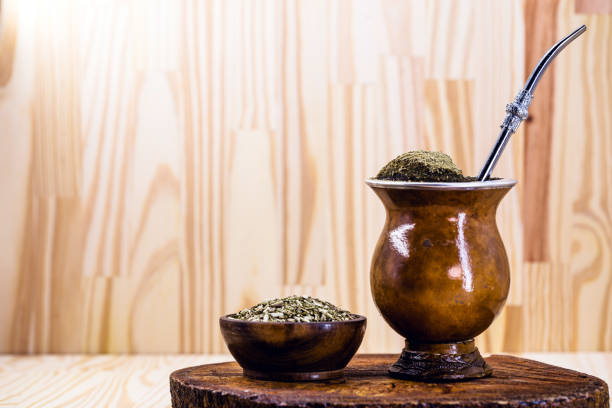
Yerba mate 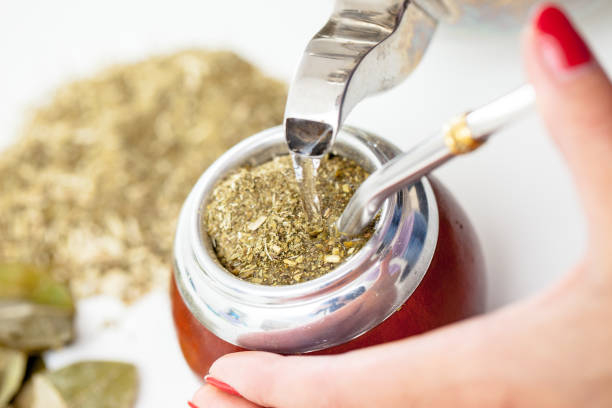
Yerba mate -
One of the most popular drinks consumed worldwide is coffee. Coffee's high caffeine content is recognized to provide a number of health advantages. Studies on coffee have found that it increases calorie expenditure and fat breakdown, which can aid in weight reduction. Coffee may also aid in reducing appetite, which will help with weight reduction. It appears that consuming caffeine 0.5–4 hours before a meal may affect how quickly the stomach empties, the hormones that control appetite, and how hungry you feel. Additionally, compared to not drinking coffee, people may be less inclined to eat more at their next meal and throughout the day.
Interestingly, men and women may experience these impacts differently. According to one study, males who consumed 300 mg of caffeine had their calorie consumption drop by roughly 22%, but women's calorie intake was unaffected. Additionally, several research revealed that caffeine had no beneficial benefits on hunger suppression. Additionally, caffeine may accelerate fat burning by up to 29% in lean individuals and up to 11% in non-lean individuals. However, take notice that some people may have a rise in blood pressure after consuming 250 mg or more of caffeine.

Coffee 
Coffee
















